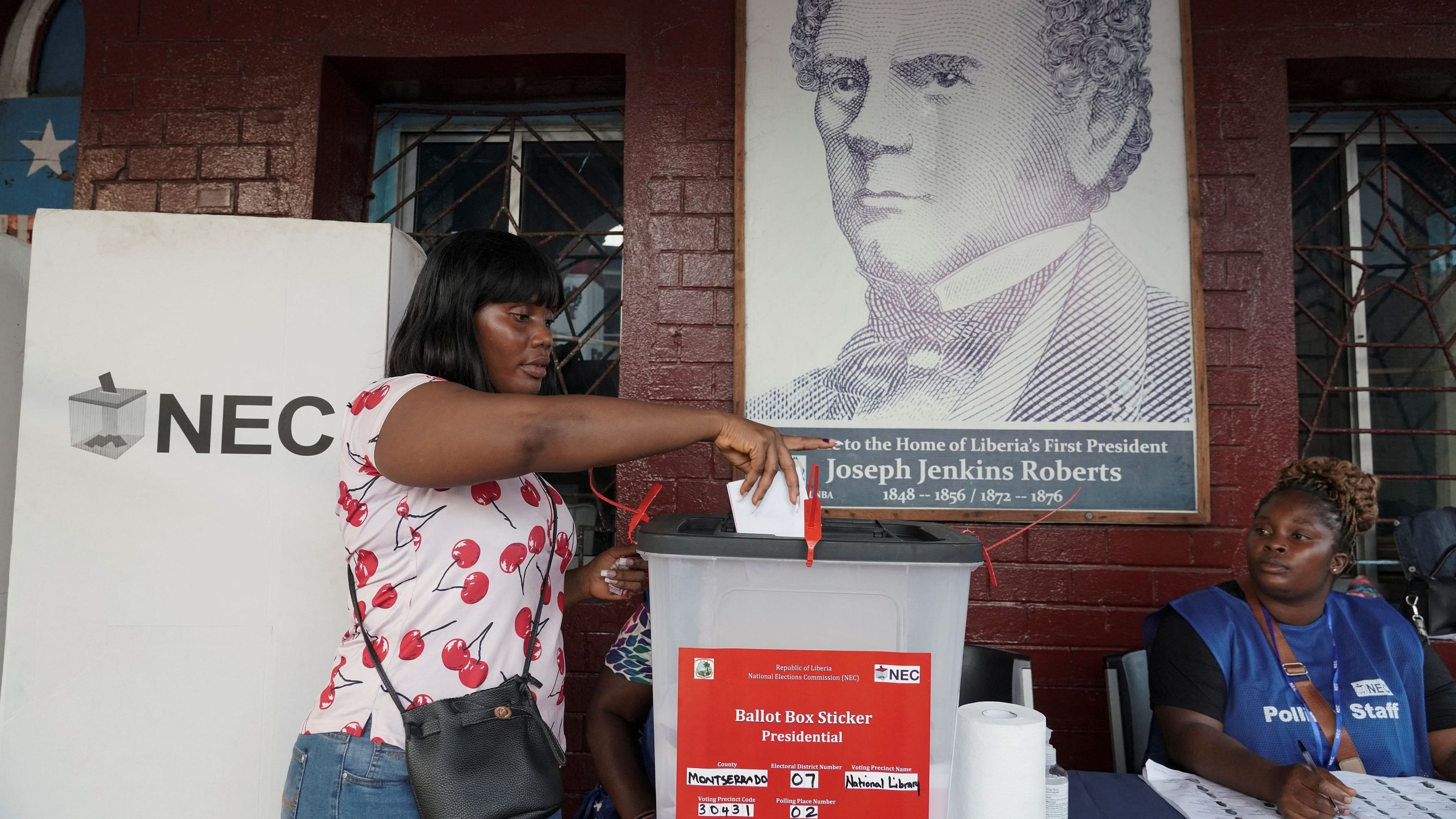
A woman casts her vote during a run-off election between Liberian President George Weah and former Vice President Joseph Boakai, in Monrovia, Liberia November 14, 2023.
Credit: Reuters
Liberia’s president, George Weah, conceded defeat Friday night in his bid for a second term, after a tight runoff against Joseph Boakai, a 78-year-old political veteran, in an election that was considered a test of democracy in the West African nation.
Boakai, who had served as vice president for 12 years under the former president, Ellen Johnson Sirleaf, defeated Weah, a 57-year-old former soccer star, by a razor-thin margin.
The country’s national election commission stopped short of declaring a winner Friday afternoon, but announced that with more than 99 per cent of the ballots counted, Boakai held 50.89 per cent of the votes, and Weah 49.11 per cent. It was the nation’s tightest election in two decades, and a rematch of the election in 2017, when Weah handily beat Boakai.
Weah said in a radio address broadcast late Friday evening that while his party had lost the election, “Liberia has won.”
“This is a time for graciousness in defeat, a time to place our country above party, and patriotism above personal interest,” he said.
His words marked a notably peaceful transition of power at a time when many other West African countries have endured a spate of coups, aging leaders clinging to power and elections plagued by allegations of vote rigging.
This is the first time since the early 1900s that an incumbent president of Liberia has not been reelected after serving one term. The swearing-in ceremony is scheduled for January.
The election, first held Oct. 10 with the runoff Tuesday, was the first one managed solely by Liberian authorities without international funding or assistance since the country emerged in 2003 from a ruinous civil war.
Boakai plans to speak publicly Saturday, his spokesperson said. The candidate told Reuters on Friday night, “First and foremost, we want to have a message of peace and reconciliation.”
The presidential campaign hinged on accusations that Weah tolerated corruption in government circles and failed to deliver jobs and development, despite the country’s economic rebound after the pandemic.
One voter in the capital, Monrovia, said that he had cast a ballot for Boakai because of his promise to crack down on drug abuse and corruption.
“It’s unthinkable that you would see young people getting addicted to drugs, and the president doesn’t have any idea how to tackle it,” said the voter, MacPherson Darweh, who is 45.